NDA allies BJP and JDU skipped each other’s iftar party this year. Bihar CM Nitish Kumar attended his political rival and Hindustani Awam Morcha (Secular)’s leader Jitan Ram Manjhi’s Iftar party instead. While the Congress, BSP and SP skipped their iftar parties this year, the BJP and AAP showed surprising bonhomie by attending one together.
The Print asks – Are political iftars all about empty symbolism in India?
Politicians have used iftar parties for political benefits, but not me
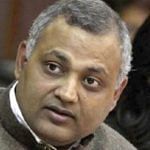 Somnath Bharti
Somnath Bharti
MLA, Aam Aadmi Party
Politicians across the country have used religion and communities for political purposes. Earlier, the Congress used Muslims for its sole benefit. Today, it’s the BJP doing the same with Hindus.
The Congress kept Muslims deprived of healthcare and education facilities. It first created fear in their minds and used that for its own benefit to remain in power. Similarly, Prime Minister Narendra Modi pushes for the consolidation of Hindus creating an imaginary fear. But Hindus are never going to be in any kind of danger in this nation.
I have been attending Eid celebrations since the morning. I think of my constituency as a family, irrespective of their religion. I roam around celebrating Eid in different colonies just as I walk around during Holi.
In the past, politicians have used iftar parties for political purposes but that’s not the case with me. I am truly available to the people in my constituency in their bad and good times. I see that people may view it as appeasing to one kind of community, but I am equally available to all.
BJP’s Giriraj Singh needs to be asked if he understands Hindu religion. It is very unfortunate since the BJP leaders are bringing down Hindus’ religion to gimmicks. The BJP is using Hindus’ religion in the same way that the Congress used Muslims. Both these parties are responsible for dividing India along the communal lines. Giriraj Singh shouldn’t be considered a Hindu. He is a fake Hindu, whose religion is political opportunism.
Politicians host iftars or organise Ramlilas to express togetherness
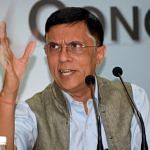 Pawan Khera
Pawan Khera
National spokesperson, Congress
Germany, like many other European countries, now has a separate ministry for integration. Even before the beginning of the Syrian refugee crisis, Germany was debating various aspects of multiculturalism primarily to respond to the possibility of Turkey joining the European Union.
At international events on multiculturalism, India was looked upon as a role model for cultural, religious and linguistic integration. For an ancient civilisation such as ours, that has housed several communities, there’s hardly an experiment not done to integrate and mistake not committed to disintegrate or fault line not lived with. And for every such attempt, there is a new generation coming up with new challenges and new questions.
Politicians host iftars or organise Ramlilas or Jagaran to express togetherness with the religious and cultural practices of the constituents. India never required a separate ministry for integration. Despite our politicians and their politics; despite our cliched humour directed at people belonging to different regions, absorbing diversity and celebrating it comes naturally to us as Indians.
Also read: Ally JD(U) hits back after Giriraj iftar jibe: ‘We sport a tilak and wear skullcaps’
The question remains that if iftar, then why not navratri or chhath?
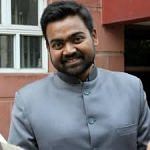 Guru Prakash
Guru Prakash
Senior Research Fellow, India Foundation and member, BJP
Iftars have been used as a political tool for quite some time now. The Constitution of India makes it abundantly clear in its preamble that we are a secular state and the state will not propagate any particular faith. Whether or not it has discouraged the political class to use religion as a vehicle to achieve power is not clear.
The most-discussed iftar of the season took place in Bihar. All the major political parties of the state organised their respective iftar parties to either demonstrate strength, like in the case of Lok Jan Shakti Party, or to keep the house in order, like in the case of Rabri Devi where all the leaders huddled and discussed the strategy for next year’s assembly elections.
The tweet by a Union minister created confusion in political circles about the future of alliance between the state partners, which had its background in the formation of central and expansion of state cabinet.
Iftar as an institution or a tool must be discussed dispassionately. The minister raised some valid concerns. The question remains that if iftar, then why not Navratri or Chhath? As we mature as a constitutional democracy, conversations on such issues must be welcomed with open arms.
Over the years, Muslim clergy became disillusioned with iftar party ‘tamasha’
 Rasheed Kidwai
Rasheed Kidwai
Political analyst
Political iftars have lost their relevance due to the decline of secular politics in India. This year around, just like 2018, in Delhi, the Rashtrapati Bhavan, prime minister’s home and residences of all cabinet ministers remained indifferent.
The Muslim community is not missing it much. Over the years, credible Muslim clergy have become disillusioned with what they saw as a “political tamasha” laced with a display of wealth. In fact, many Muslim organisations even gave calls to boycott iftar parties, saying that Ramazan was meant for prayers, piety and penance, not socialising and politics.
In any case, there’s nothing official about hosting iftars. In the past, presidents, prime ministers, Union ministers and chief ministers have been known to hold iftars as a sign of goodwill for the Muslim community. The guest list used to include leading clerics, eminent Muslims, ambassadors of Islamic nations and assorted political personalities. But out of fashion now, Sonia and Rahul Gandhi, the Congress, Samajwadi Party and rest of the opposition, too, ignored iftars. They are busy firefighting internal disquiet and licking the wounds of the 2019 electoral defeat.
The 2017 Uttar Pradesh state assembly polls and 2019 Lok Sabha polls have shown that the concept of Muslim vote bank has lost relevance. The so-called counter polarisation has been far more potent and effective. Therefore, there is no need even for the symbolic gesture.
Also read: Absence of iftar parties will produce a new kind of Muslim elite
Iftar parties became Page 3 events after Indira Gandhi used them as ‘mobilisation’ strategy
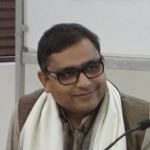 Hilal Ahmed
Hilal Ahmed
Associate professor, CSDS
Political iftar parties are a post-colonial phenomenon.
It began in the 1950s when the Congress under the leadership of Nehru tried to create a culture of sarv dharma sambhava. Nehru, however, consciously made them a private affair and never organised any official iftar party.
After Nehru’s demise, Indira Gandhi began a new kind of politics. She disregarded the democratic institutions and began promoting ‘loyal’ individuals as community representatives. In such a scenario, she used iftar parties as a ‘mobilisation’ strategy. Since then, iftar parties have turned into a page-three event.
Rajiv Gandhi and V.P. Singh continued this tradition. Interestingly, BJP leaders like Atal Bihari Vajpayee and Sikander Bakht didn’t hesitate to organise iftar parties to show the BJP’s version of political inclusiveness.
Narendra Modi-led BJP, however, deviated significantly from this tradition. It argued that iftar parties are nothing but an attempt to create a Muslim vote bank.
We must remember that iftar parties have nothing to do with the everyday life of Muslims. In fact, such events are organised for mobilising the elite Muslims to create an impression that the political class is sensitive about the entire Muslim community.
Iftar party, hence, is a political tool, which is either used to justify the claim of ‘reaching out to Muslims’ or to validate the assertion of Muslim appeasement.
It’s iftar-type political symbolism that has alienated Muslims and resulted in majoritarian polarisation
 Y.P. Rajesh
Y.P. Rajesh
Managing editor, ThePrint
Why do politicians organise iftars? Wear kurtas and prayer caps and hug their guests and pose for cameras? It is to convey a fake sense of bonding and fraternity while secretly hoping that the Muslim masses would fall for the optics and embrace the politician or his/her party in the next election.
Not convinced? Then ask yourself how many of these same politicians have organised similar events or thrown parties to celebrate Christmas, Mahavir Jayanti and Buddha Purnima? After all, Christians, Jains and Buddhists are minority communities too and a similar togetherness should extend to their festivals and celebrations as well. But they are not ghettoised vote banks who need to be treated differently to make them feel politically at home.
Unfortunately, it is this kind of long-running political symbolism that has alienated the Muslim community and also resulted in the polarisation of majoritarian political sentiment.
A cursory look at any indicators that matter for Indian Muslims will tell you why this symbolism has been nothing but empty. Or just go back to the Sachar Committee report on the social, economic and educational status of Muslims in India. If political parties want to be truly secular, they should focus on improving the status of Muslims in India and raising them to the levels of the rest of the population.
Iftar dinners, am afraid, are not one of the ways to achieve that.
Compiled by Kairvy Grewal.


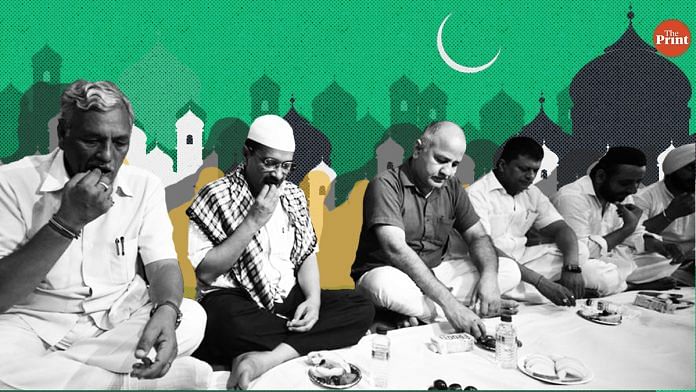

Hilal Ahmed (above) has put it very correctly. The politicisation of ‘Iftar’ was begun by Indira Gandhi and continued by Congress PMs ( Vajpayee also) and It is now rightly discontinued by Modi. What is “Iftar”, exactly? It is the breaking of the voluntarily imposed fast observed scrupulously during the whole day, every day in the month of Ramzan by devout Muslims, and is NOT a social activity that these politicians have made it by giving a gala dinner with groaning tables and chattering guests, in an atmosphere resembling a social gathering (invited media in attendance) rather than the intended SIMPLE and symbolic ‘breaking of the fast’. It is used more often as a meeting to garner political leverage and patronage. Worse, it is clearly seen by the Hindus as a ‘political’ tool used by politicians. Its political slant ought to be discontinued, at least what passes for it now, as ‘Iftar’ in the political class. .
Well said, Mr Rajesh!
A very gracious gesture of solidarity and belonging. If one does not like Muslims, all such acts can be derided as pseudo or appeasement.